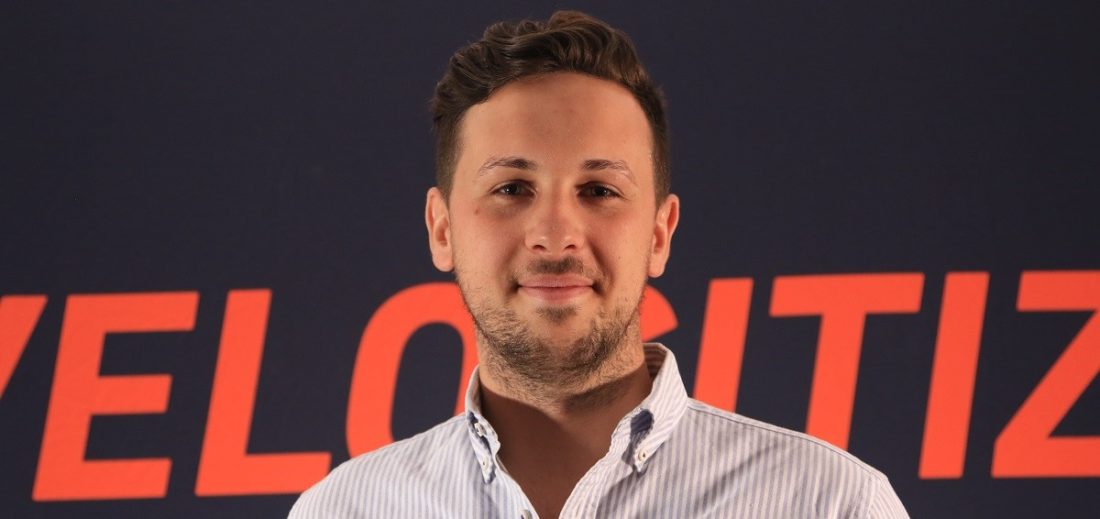It’s great to have all this data. Big data is the most valuable commodity in the world now, but how do we communicate that and translate that into actionable ways?
Jacob Stanley is the General Manager and SEO Specialist at StudioHawk, an award-winning international company that specializes in Search Engine Optimization (SEO). Stanley is responsible for assisting, educating and overseeing all SEO specialists that service many of Australia’s largest businesses.
Through building effective workflows, leading training programs and maintaining a positive work culture, Stanley has helped StudioHawk grow from a two-man show to a double-digit team, all within two years.
In this episode of Velocitize Talks, Jacob Stanley shares his thoughts on best SEO practices and what’s on the horizon for the future of search.
Stay on script (1:35)
Javascript is just really hard because it can break quite easily. If it’s not very clean and not easily crawlable then all of a sudden that page is not indexed; that is a huge loss to a company.
A majority of websites use JavaScript to improve interactivity and UX and to rank higher in search results. (See how JavaScript is used in WordPress.) So it’s important that SEOs understand how Google handles JavaScript and how to troubleshoot any issues.
According to StudioHawk, “Ultimately, the goal is to have any important page that you want to rank for to be crawled and indexed in Google’s database in order to rank for search queries.” Optimizing your website to be crawled is easy to do with Google’s checklist for webmasters.
What a user wants (2:12)
Search is becoming predictive. [With] Google knowing what you want before you want it makes your life a little bit easier. It’s still in its early stages, but it’s progressing really fast and that’s an exciting space.
Google’s RankBrain delivers over 35 million search results every day. Since its introduction in 2004, predictive search, or autocomplete, has been filling out search queries as well as influencing user behavior with their predictive autocomplete text. Stanley finds search personalization to be “very organic once that ball starts rolling; it kind of does it itself.”
With predictive search that personalizes what a user wants, before perhaps even they know what they want, as well as a website’s schema that serves up search snippets, the discovery of information is becoming lightning fast. In order to have content served up in one of those 35 million daily searches, it is essential for marketers to improve their SEO efforts with Google predictive search.
Mobile comes first (6:54)
Seventy percent of users now use mobile, which is huge. Google going mobile-first indexing has really pushed it.
As of July 1, 2019, mobile-first indexing is enabled by default for all new, previously-unknown-to-Google Search websites. Mobile-first indexing placed mobile as the predominant version for indexing and ranking. The desktop version was historically used for that purpose. This translates into websites designed and optimized for mobile-first so that they load fast and include crawlable structured data.
The accelerated mobile pages plugin from WordPress is a way to deliver content to mobile users faster as it provides stripped down versions of your website that allows it to load blazing fast.
Buy local (8:35)
Google and Apple give the smaller mom and pop businesses a lot of opportunity to play with the bigger players. That’s big because there are so many of them [with] access to that and making it so simple. It’s going to really change brick and mortar businesses.
People don’t search for products from just any online vendor. They’re searching for local businesses online—89% each week—and 78% of local-mobile searches result in offline sales. If a company doesn’t show up in these results, they’re missing out on a large portion of potential customers.
StudioHawk works with companies to build their local landing pages which inform users about the geographical areas a company serves and what products and services they offer. Investing in local landing pages leads to higher visibility, more traffic and ultimately more leads. (This is even more important during the coronavirus.)
Best in search (10:28)
If you’ve got the money, you’ve got the best of the best all talking about SEO.
Traffic Think Tank, as recommended by Stanley, is a Slack-based SEO training and gated community featuring digital marketing courses, an academy, and members-only content. Founded in 2018 by Matthew Howells-Barby, Nick Eubanks, and Ian Howells, the community brings together hundreds of the top minds in digital marketing from around the world and offers members access to exclusive videos, process documents, analysis templates, and free tools.
For more information on StudioHawk, check out their website and follow them on LinkedIn, Facebook, Instagram and Twitter at @StudioHawk. To stay up to date with Jacob Stanley, follow him on LinkedIn.
This video was originally recorded in Melbourne in 2019 and has been updated accordingly.
